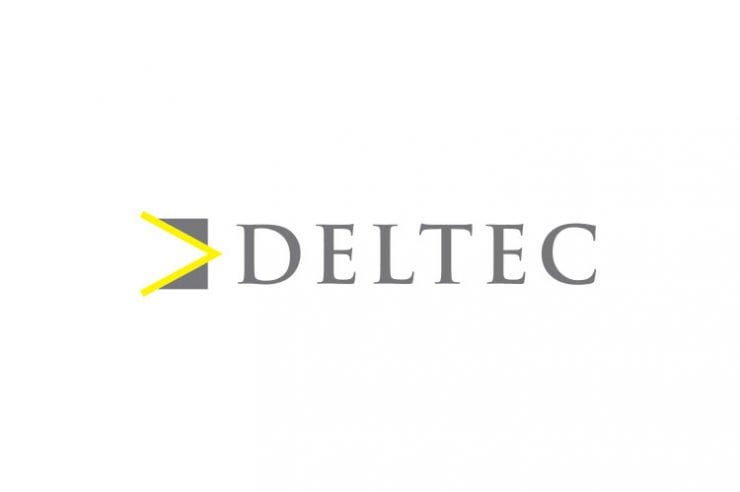Deltec Bank Believes That Blockchain Technology Will Eliminate Mediation
Digital business models are now a popular option in the retail banking sector. It is part of a broader movement throughout the whole financial services industry to be where people are instead of making households come to precise locations.
When staring at the excitement that blockchain technologies create in the financial services industry, it is unusual to find the retail banking sector electing to stay on the sidelines. Investment firms and infrastructure creators see a world where this technology can automate processes while building instant settlements.
Some of the hesitations are attributable to an unpredictable future of regulations. Efforts to launch blockchain-based exchange-traded funds (ETFs) were already barred by the Securities and Exchange Commission (SEC). Many retail banks are small, seldom community-owned, and may not have the means necessary for investment.
Potential Choices for Retail Banking and Blockchain
According to Deltec Bank, ‘Blockchain offers the banking sector three critical strengths: trust, data handling, and a reduction in the use of intermediaries. Those characteristics lead to potential applications that are worth taking into reflection.
1. Risk Scoring
Retail banks take a conventional approach to lending because a notable number of households are unbanked or underbanked. Merging the data could provide institutions all over the world to see data in real-time settings without specific permission at the time of application. Smart contracts could allow pre-programmed access, designing a process that facilitates more informed decisions.
2. Fraud Prevention
KYC protocols are a developing area of regulatory compliance that retail banks must achieve. Up to $16 billion in losses happen each year in this sector because of identification theft. Spending on anti-money laundering efforts was more than $25 billion in 2017. Blockchain provides the industry with a digital fingerprint that becomes a unique identifier. This data can be present on the distributed ledger, making it accessible anywhere in the world.
3. Remittances
Over $600 billion in cross-border payments transpire each year. The market grows at 3% consistently, and an escalation in international trade could make that trend increase even more in the next decade. The only obstacle is that payment processing at the retail banking level is cumbersome and arbitrated, with high transaction fees. Blockchain rejects the idea of a border because it authorizes the exchange of value within seconds. It still gives immutability and transparency while decreasing expenses for everyone.
The financial services industry is boosting its retail banking sector to give Blockchain a try. The C-Suites must understand that the long-term benefits this technology offers are worth the expense of its investment.
Blockchain can offer less friction, lower costs, and better security. There could be some growing distress during the implementation journey, but the potential gains over time look to be worth the risk.
Stay informed with daily updates from Blockchain Magazine on Google News. Click here to follow us and mark as favorite: [Blockchain Magazine on Google News].
Get Blockchain Insights In Inbox
Stay ahead of the curve with expert analysis and market updates.
latest from tech
Disclaimer: Any post shared by a third-party agency are sponsored and Blockchain Magazine has no views on any such posts. The views and opinions expressed in this post are those of the clients and do not necessarily reflect the official policy or position of Blockchain Magazine. The information provided in this post is for informational purposes only and should not be considered as financial, investment, or professional advice. Blockchain Magazine does not endorse or promote any specific products, services, or companies mentioned in this posts. Readers are encouraged to conduct their own research and consult with a qualified professional before making any financial decisions.

 Bitcoin
Bitcoin  Ethereum
Ethereum  Tether
Tether  XRP
XRP  Solana
Solana  Dogecoin
Dogecoin  USDC
USDC  Cardano
Cardano  Lido Staked Ether
Lido Staked Ether  TRON
TRON  Avalanche
Avalanche  Chainlink
Chainlink  Toncoin
Toncoin  Wrapped stETH
Wrapped stETH  Shiba Inu
Shiba Inu  Sui
Sui  Wrapped Bitcoin
Wrapped Bitcoin  Hedera
Hedera  Stellar
Stellar  Polkadot
Polkadot  Hyperliquid
Hyperliquid  WETH
WETH  Bitcoin Cash
Bitcoin Cash  LEO Token
LEO Token  Uniswap
Uniswap  Litecoin
Litecoin  Pepe
Pepe  Wrapped eETH
Wrapped eETH  NEAR Protocol
NEAR Protocol  Ethena USDe
Ethena USDe  Aave
Aave  Aptos
Aptos  Internet Computer
Internet Computer  USDS
USDS  Cronos
Cronos  POL (ex-MATIC)
POL (ex-MATIC)  Ethereum Classic
Ethereum Classic  Mantle
Mantle  Render
Render  Bittensor
Bittensor  Artificial Superintelligence Alliance
Artificial Superintelligence Alliance  MANTRA
MANTRA  WhiteBIT Coin
WhiteBIT Coin  Monero
Monero  Arbitrum
Arbitrum  Dai
Dai  Algorand
Algorand 



